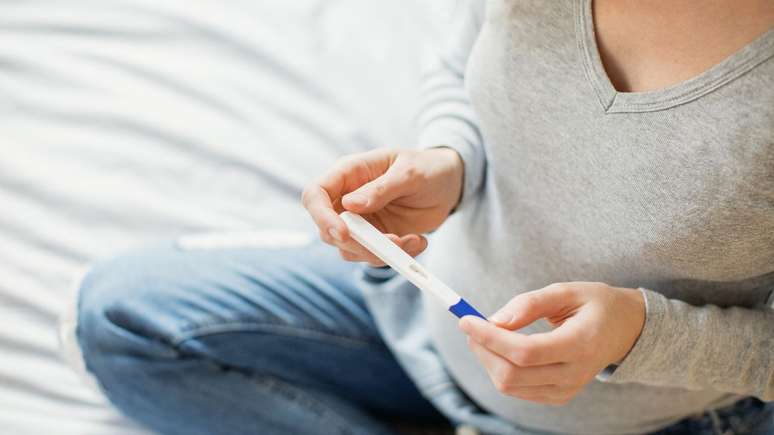The expert explains what happens and what are the main signs of the ovulation period; see and know how to predict yours!
It is commonly believed that women ovulate from day 14 of the menstrual cycle, but this is just an average. Most women ovulate on different days, which vary according to each body and its cycle.explains human reproduction specialist Dr. Fernando Prado, member of the American Society for Reproductive Medicine (ASRM) and clinical director of Neo Vita.
html[data-range=”xlarge”] figure image img.img-eaf9211fcf5409cdc105cc78383004be97zeajoc { width: 774px; height: 435px; }HTML[data-range=”large”] figure image img.img-eaf9211fcf5409cdc105cc78383004be97zeajoc { width: 548px; height: 308px; }HTML[data-range=”small”] figure image img.img-eaf9211fcf5409cdc105cc78383004be97zeajoc, html[data-range=”medium”] figure image img.img-eaf9211fcf5409cdc105cc78383004be97zeajoc { width: 564px; height: 317px; }
“Loops have different lengths, so a good way to think about it is that you probably you will ovulate four days before or after the midpoint of your period. But don’t rely on your calendar alone to find out, as this can be frustrating if your period is irregular. Pay attention to ovulation signs and symptoms to get the inside scoop when the egg is released.
She says that ovulation, the actual process by which the ovaries release an egg… takes about 12 to 24 hours. “But remember that your fertile window is open much longer. So if you’re trying to get pregnant, there’s no need to stress about forcing yourself to have sex during that time. Sperm can be in your body, waiting for find and fertilize the egg, three to five days before”.
ovulation symptoms
Ovulation symptoms are not as obvious as menstruation. Also, not all women show the same signs.. Therefore, you need to tune into your body and pay attention to body temperature, cervical mucus and the texture of the cervix to the touch. See details below:
Change in basal body temperature
Ovulation can raise your body temperature by half a degree to one degree. So you won’t notice this change without a good thermometer and without knowing your normal individual body temperature (measured at the start of the day, before getting out of bed).
Changes in cervical mucus
Just prior to ovulation, you will have more cervical mucus, which is thin and slippery. After ovulation, it becomes denser and less noticeable. If you want to get pregnant, days when your mucus is thin and slippery are your best bet.. The challenge is that not everyone has a lot of cervical mucus, so this method is less likely to be helpful if you’re in that group.
Change in the cervix
As you get closer to ovulation, the cervix dilates and becomes a little softer. After that, it feels more “stiff”. This is not the main way to know that you are ovulating.. Sometimes it can be hard to feel these changes, but if you want to get familiar with your body, it can give you interesting clues about when ovulation occurs.
How to predict ovulation?
According to the doctor, there is no perfect way to predict ovulation, but there are many ways to calculate it. “Ovulation is usually easier to predict if you have a regular cycle. If you’ve been estimating your ovulation cycles for some time and aren’t getting pregnant, it’s worth seeing a doctor who specializes in human reproduction,” he guides.
However, for many people, symptom-based ovulation prediction methods can be helpful. Another way to try and predict is through ovulation kits, similar to pregnancy tests.. It controls a hormone called luteinizing hormone (LH), which is responsible for ovulation and progesterone production. Finally, it is also possible to predict through fertility monitoring devices.
“They’re simply devices that read your hormones, most commonly via a stick you pee on. Some tell you which days to test and take a reading if it’s a high, low, or high fertility day, so you get more information to take action than with a simple ovulation kit”.
However, if you are planning a pregnancy, the doctor emphasizes that it is important to always consult a specialist to help you in this matter. “Some cases may be more serious and urgent, as the time factor is worrying, especially for women over 35,” she concludes.
Source: Terra
Ben Stock is a lifestyle journalist and author at Gossipify. He writes about topics such as health, wellness, travel, food and home decor. He provides practical advice and inspiration to improve well-being, keeps readers up to date with latest lifestyle news and trends, known for his engaging writing style, in-depth analysis and unique perspectives.






![[Coluna] Does Brazilian protectionism inspire Trump? [Coluna] Does Brazilian protectionism inspire Trump?](https://p2.trrsf.com/image/fget/cf/774/0/images.terra.com/2025/10/16/2008907400-74231636354.jpg)

